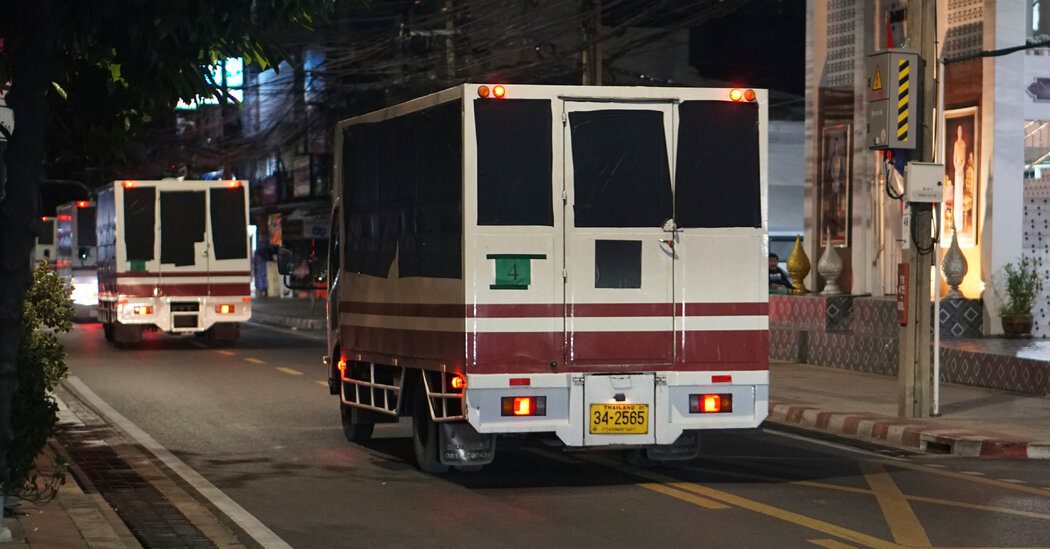

Thailand has recently deported approximately 40 Uyghur asylum seekers back to China, despite alerts from human rights organizations and foreign governments regarding the potential risks of torture and lengthy imprisonment they might face upon their return.
These Uyghurs, who belong to a persecuted Muslim minority in China, had been held in a Bangkok detention facility for over ten years. They were part of a larger group of more than 300 individuals who fled China in 2014, seeking to transit through Thailand on their way to Turkey, where a significant Uyghur population resides.
In recent weeks, several detainees, all male, launched a hunger strike in opposition to the looming threat of repatriation to China. Eyewitnesses reported seeing six trucks, their windows obscured, leave the downtown Bangkok immigration detention center where the Uyghurs had been held. This departure was accompanied by police vehicles that cordoned off the area.
An unexpected flight operated by China Southern Airlines departed Bangkok around 5 a.m. and headed to Kashgar in Xinjiang, the Uyghurs’ homeland, landing shortly after noon. Julie Millsap from No Business with Genocide, a Washington-based organization advocating for the Uyghurs, stated that all indications suggest that at least 40 men were indeed deported.
Human Rights Watch condemned the Thai government for this action, particularly since authorities had previously assured the public that such deportations would not occur. Elaine Pearson, the Asia director for Human Rights Watch, expressed that Thailand’s decision to transfer the Uyghur detainees to China constitutes a serious breach of both domestic and international legal obligations. She emphasized the high likelihood of these men facing torture, enforced disappearances, and prolonged imprisonment in China.
Both the Thai police and foreign ministry have not responded to ongoing inquiries regarding this deportation. Meanwhile, a report from China’s official Xinhua news agency offered scant details about the deportees’ identities or their regions of origin within China, asserting that the repatriation was conducted in line with legal standards upheld by both China and Thailand, as well as international practices.
Pirada Anuwech contributed to this report from Bangkok.








